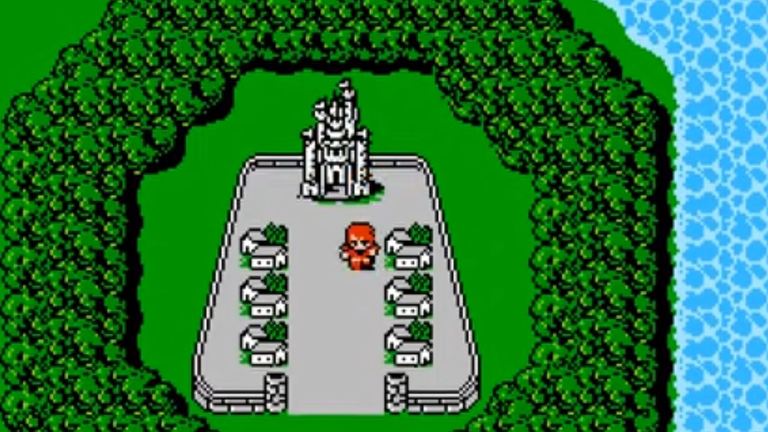Final Fantasy Creators Reveal The True Origins of the Franchise’s Name
Remember when Squaresoft was about to declare bankruptcy, so the company bet it all on the appropriately named Final Fantasy? It turns out that's not exactly what happened.

You shouldn’t judge a book by its cover, but when trying to attract audiences, a catchy title can help any piece of media stand out in a crowd. For many games, simply going with the name of the title’s protagonist is the safest bet. Just ask Sonic and Mario. But some game titles are a little more unorthodox, which usually inspires fans to search for their origins. Sometimes that search results in urban legends that take on a life of their own. Well, when it comes to the origins of the name “Final Fantasy,” though, that series creators have finally decided to set the record straight.
To celebrate the 35th anniversary of Final Fantasy and the launch of the Pixel Remaster collection (as well as the 60th birthday of the franchise’s creator, Hironobu Sakaguchi), Square Enix conducted an interview that dives into the origins of the series. For that interview, Sakaguchi reunites with longtime Final Fantasy alums Kazuko Shibuya and Yoshinori Kitase to drink champagne and answer burning questions about the franchise. In the process, the trio shed a little light on the long-rumored origins of Final Fantasy‘s name.
Legend has it that developer Squaresoft was on its last legs and decided to put all of its efforts and resources into one last major project: a fantasy role-playing title. What would the game be called? Well, since Squaresoft developers went into the project under the assumption that it could very well be the studio’s final title, why not call it “Final Fantasy?” For years, that’s been the most popular version of the story of how one of gaming’s most famous role-playing franchises got its iconic name. It’s a story worthy of the incredible narratives that have since come to define the series itself. The only trouble is that it’s not exactly true.
According to Sakaguchi, the name “Final Fantasy” was actually inspired by two different sources: Dragon Quest and the Fighting Fantasy line of novels. As he recalls, the Dragon Quest series was starting to establish itself when the game’s publishers, Enix, supposedly discussed shortening the series’ name to “Drakue.” Sakaguchi’s team was inspired by that decision and wanted to give their own game a name that could be easily shortened using the Roman alphabet.
This decision resulted in Square coming up with the abbreviation “FF,” but they didn’t actually know what those letters would stand for. The company went through several ideas, one of which was apparently Fighting Fantasy. However, because of conflicting trademarks, they ultimately decided to settle on the name Final Fantasy as a “last resort.”
So while the name Final Fantasy does represent a kind of last-ditch effort, it seems that it’s not directly related to the idea of it possibly being Squaresoft’s last big game as a very popular urban legend has long suggested.
Interestingly, that’s not the only urban legend about Final Fantasy‘s name that Sakaguchi shot down during the interview. Sakaguchi also came clean about how the title “Final Fantasy” became connected with the phrase “ultimate illusion” in Japan.
It seems that a group of schoolchildren once sent Sakaguchi a postcard about something they learned in school that day. According to the students, their primary school English teacher decided to use the title “Final Fantasy” for a lesson. This teacher wrote the game’s name on a whiteboard, followed by what they claimed was the translation, “Kyukyoku no gensou” (“The ultimate illusion”) in Japanese.
The students asked Sakaguchi if the English teacher was correct. Sakaguchi decided that even though the teacher wasn’t right when they provided the lesson, they sure would be right moving forward. As soon as Sakaguchi received the postcard, he proclaimed, “We are using this!” and decided “Final Fantasy” would mean “The Ultimate Illusion” from then on. Whoever this teacher is, we thank you for essentially changing the course of video game history.
